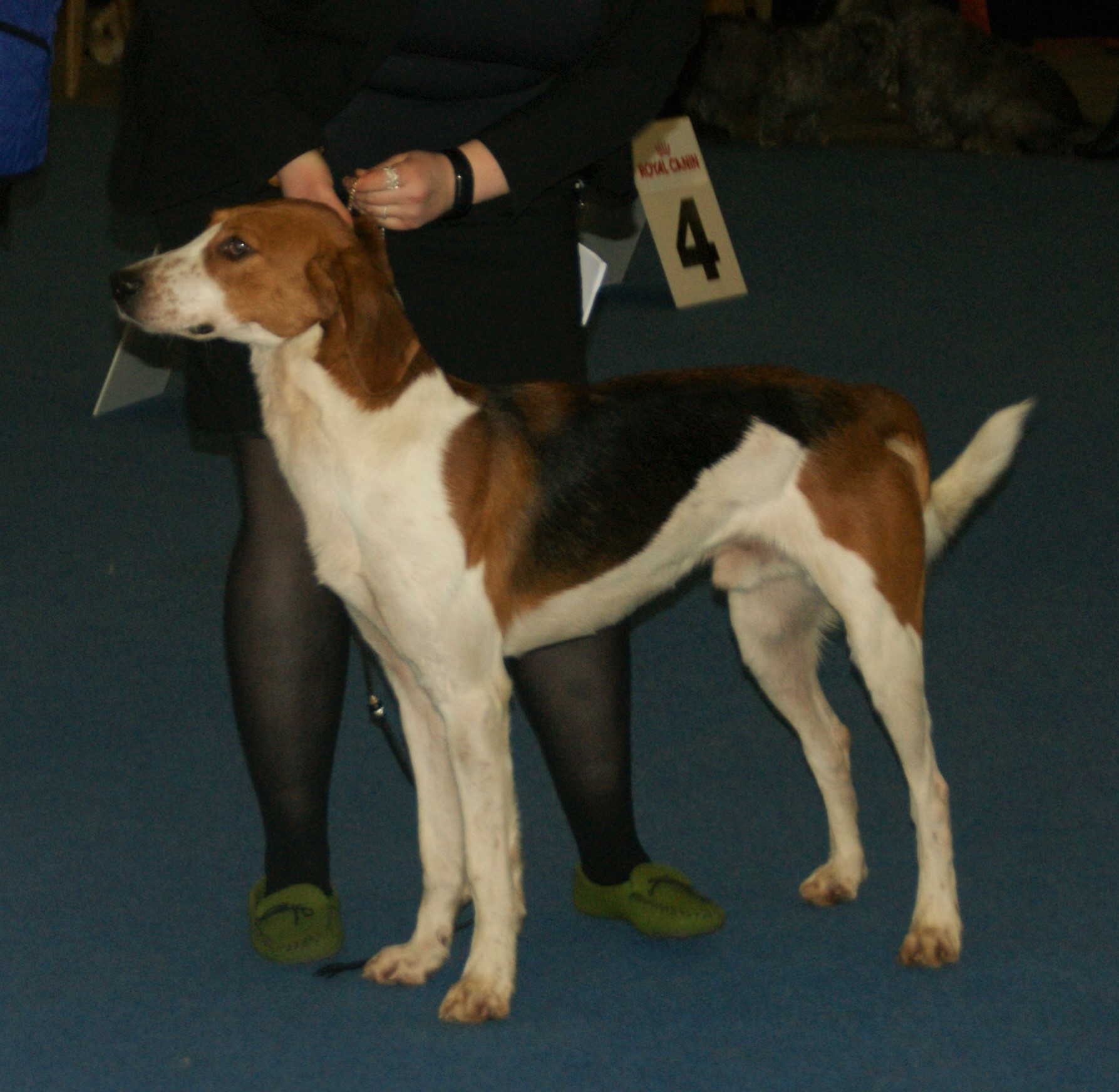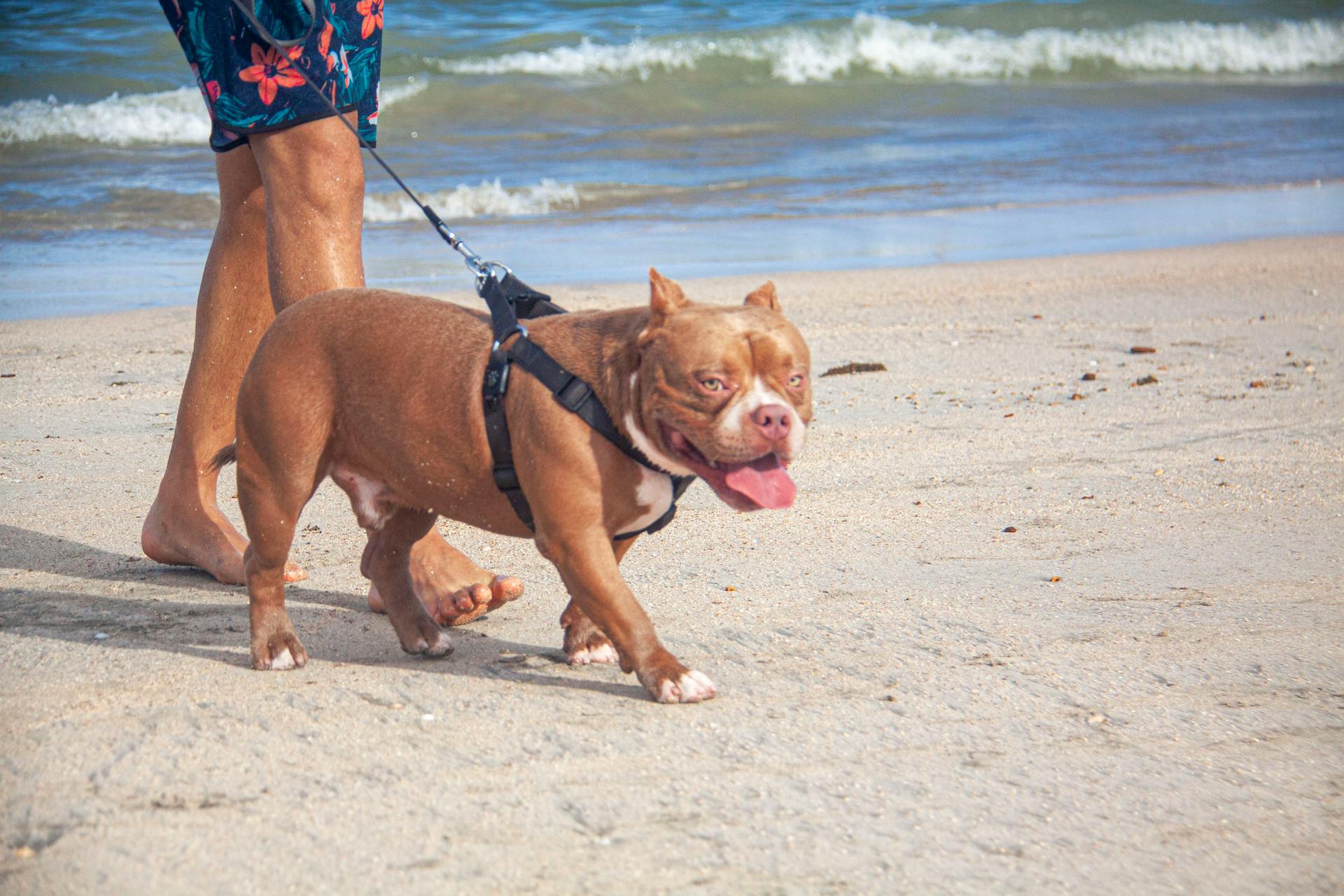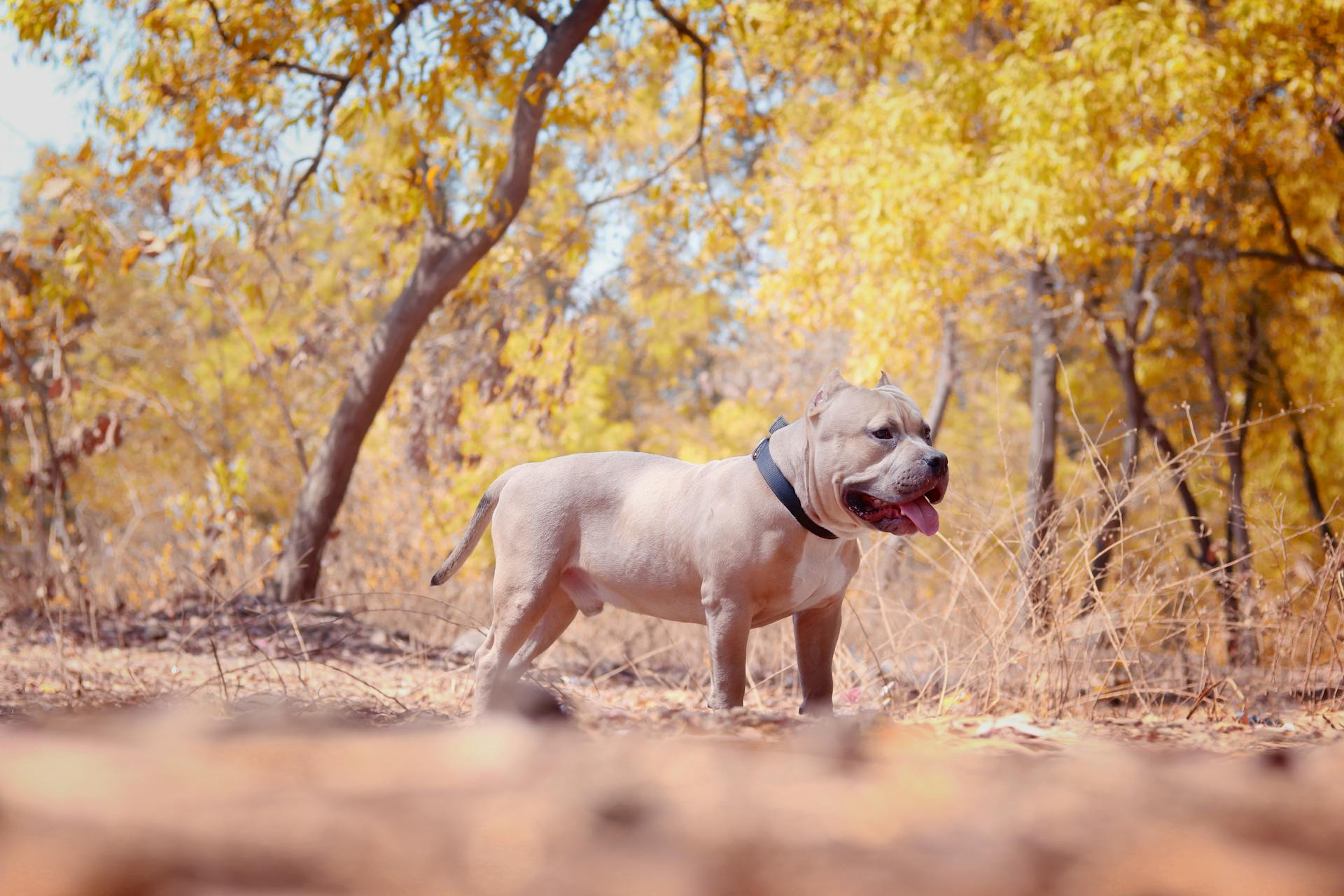
American Foxhound breeders have a wealth of knowledge to share on what makes their beloved hounds happy and healthy. They emphasize the importance of regular exercise, with some breeders recommending at least 30 minutes of running or playtime per day.
Exercise is crucial for Foxhounds, as they were bred for hunting and need to stay physically active to prevent boredom and destructive behavior. In fact, a lack of exercise can lead to weight gain and other health problems.
To keep their hounds happy, breeders also stress the need for mental stimulation. They recommend providing plenty of toys and puzzle toys to keep their minds engaged and active. This can include interactive games, scent work, and even simple puzzle toys filled with treats.
In addition to exercise and mental stimulation, breeders highlight the importance of proper nutrition and a balanced diet. A well-balanced diet that includes high-quality protein sources, such as chicken or beef, can help support their hounds' overall health and well-being.
Care and Nutrition
American Foxhounds are a rare breed, but they can make great family dogs if you're willing to put in the effort. They have huge energy stores that need to be directed into appropriate activities, so be prepared to provide one or two hours of exercise every day.
Their innate prey drive means caution is warranted when introducing them to smaller pets like cats, and they should always exercise on a leash or within a securely fenced area. Their booming bay can be a bit of a challenge, but early and ongoing training can help curb their conversational style.
If your American Foxhound is eating a complete and balanced diet of dog food approved by the AAFCO, they shouldn't need supplementation. However, nutritional supplements and prescription diets may be used to treat or prevent certain health conditions, so be sure to talk to your veterinary team before adding anything new to their diet.
As an active and energetic breed, the American Foxhound requires a high-quality dog food that's suited to their particular age - as well as any additional health concerns. You should monitor the amount of food and treats that you give your American Foxhound, especially since they love to eat and are prone to becoming overweight.
Exercise is the primary love language for American Foxhounds, so be prepared to provide lots of high-octane activities to keep this active breed on their best behavior. American Foxhounds can also be strong-willed, so regular training, grooming, and well-balanced diets are essential for them to be happy and healthy members of the family.
Most adult dogs should eat two meals a day, but American Foxhound puppies have a higher metabolism and may need a midday feeding for a total of three meals. Your vet can help you determine the best feeding schedule for your dog's age.
Foxhounds are enthusiastic eaters and may eat too much if they're allowed to graze all day, so measure out their kibble and feed them one to two meals every day to keep their weight in check. Obesity can still be a concern in American Foxhounds, even though they're active, so limit treats to no more than 10 percent of their daily calories to prevent weight gain.
A different take: Best Time to Breed Dogs
Health and Wellness
American Foxhounds are generally a healthy breed, but like all dogs, they can be prone to certain health issues. Their lifespan is around 11 to 13 years.
Hip dysplasia is a common condition that affects American Foxhounds, just like many other breeds. Genetics, excessive growth, and weight can all contribute to the risk of developing this condition. Your veterinarian may recommend joint supplements, anti-inflammatory medication, physical therapy, or surgery to help manage the symptoms.
Ear infections are another issue that American Foxhounds are at higher risk for due to their floppy ears. To prevent infections, make sure to dry their ears thoroughly after a bath or swim, and ask your vet for tips on cleaning their ears.
Here are some ways to help prevent bloat and gastric dilatation-volvulus (GDV) in American Foxhounds:
- Feed smaller meals more often throughout the day
- Use a slow feeder to prevent inhaling kibble
- Avoid strenuous exercise one hour before and after meals
Blood disorders, specifically thrombocytopathy, can also affect American Foxhounds. This condition affects the normal clotting ability of platelets, which can lead to bruising more easily than normal.
Health

The American Foxhound is a generally healthy breed with a lifespan of 11-13 years. However, like all breeds, they're predisposed to some health conditions.
Hip dysplasia is a common issue in American Foxhounds, which can cause pain, joint instability, and arthritis as they mature. Your veterinarian may recommend joint supplements, anti-inflammatory medication, physical therapy, or surgery to manage the condition.
Ear infections are another health concern for American Foxhounds, due to their floppy ears that trap moisture and create an ideal environment for bacteria and yeast to thrive. Regular ear cleaning and drying after baths or swims can help prevent infections.
Bloat is a life-threatening condition that can occur in American Foxhounds, caused by gas stretching the stomach and causing it to twist. Feeding your pup smaller meals more often throughout the day, using a slow feeder, and avoiding strenuous exercise before and after meals can help prevent bloat.
Blood disorders, specifically thrombocytopathy, can also affect American Foxhounds, affecting their normal clotting ability and causing bruising. This can be a concern for active, working dogs.

Here are some tips to help prevent health issues in your American Foxhound:
- Feed smaller meals more often to prevent bloat
- Use a slow feeder to prevent inhaling kibble
- Dry their ears thoroughly after baths or swims
- Ask your vet for tips on ear cleaning
- Consider joint supplements or physical therapy to manage hip dysplasia
- Keep an eye out for signs of bloat and seek veterinary attention immediately if you suspect your pup has GDV.
Hound
Hound breeds are known for their ability to follow a trail using their acute powers of scent. This trait is essential for their original purpose of hunting.
As a result, hound breeds often require regular exercise to maintain their physical fitness. A daily run or playtime can help them stay healthy and happy.
Their diverse nature means that hound breeds come in all shapes and sizes, each with their unique characteristics. From small to large, they all share a common trait of being bred for hunting.
Their stamina allows them to run down a quarry, but this also means they need regular rest and relaxation to avoid burnout. A balance of exercise and rest is crucial for their overall well-being.
You might like: How Fast Can a German Shorthaired Pointer Run
Coat and Grooming
American Foxhounds have a close, hard hound coat of medium length, and any color, though the combination of black, white, and tan is prevalent.
Their coats require minimal care, with a weekly brushing session to keep them clean and healthy, and to decrease shedding.
You can use a bristle brush or grooming mitt for this task, and it's a great opportunity to check their ears for signs of infection.
American Foxhounds shed a good amount of hair, but regular brushing can help keep this under control.
Their short coats are easy to care for, and they shed less than other breeds, making them a low-maintenance choice for many dog owners.
Intriguing read: Yorkshire Terrier Care
Grooming
American Foxhounds have a short coat with a hard texture that's easy to care for. They shed less than other breeds and have "wash-and-go" coats that require minimal care.
Brushing them once a week with a bristle brush or grooming mitt is all you need to handle stray hairs and keep shedding at bay. This simple grooming routine will keep their coat clean and healthy.
Bathing isn't usually necessary, unless your Foxhound has gotten into something outside. But when they do need a bath, a few times a year should be enough.
For another approach, see: Welsh Corgi Grooming
Regular dental care is also important for American Foxhounds. They benefit from an at-home routine that includes dental chews and rinses and brushing their teeth daily.
Trimming their nails about once a month is also a good idea. You'll know it's time for a trim when you hear them clacking on hard surfaces.
Checking their ears for signs of infection, such as redness or swelling, is a good habit to get into. If you notice anything unusual, alert your vet right away.
Coat
American Foxhounds have a close, hard hound coat of medium length.
Their coats can be any color, but the combination of black, white, and tan is quite prevalent.
A weekly brushing will help decrease shedding, which is good news for owners who don't want to deal with a lot of dog hair.
The traditional coat color is black and tan with white, or mostly white with black and tan.
Broaden your view: Liver Colored Brittany Spaniel
These dogs shed a good amount of hair, but a weekly brushing will help keep their coats clean and healthy.
Their coats are relatively low-maintenance, requiring only a weekly brushing with a bristle brush or grooming mitt.
American Foxhounds have "wash-and-go" coats that require minimal care, making them a great choice for busy owners.
Their coats shed less than other breeds, which is a bonus for owners who don't want to deal with a lot of dog hair.
You might enjoy: Do Border Collies Shed a Lot
Tail
The tail is a crucial part of a dog's appearance and should be considered when evaluating their overall grooming.
A well-set tail is carried moderately high with a slight curve, but it should not be turned forward over the back.
Long tails can be a fault, and some dogs may exhibit a teapot curve or have their tail inclined forward from the root, which can detract from their overall appearance.
Rat tails are also considered a fault, and owners should take steps to prevent this from happening to their dog.
Behavior and Training
American Foxhounds need at least an hour or two of stimulating exercise each day to keep them happy and prevent destructive behaviors.
Their high energy levels can make training a challenge, but breaking down skills into smaller steps and offering rewards can help keep them engaged.
Positive training that uses rewards instead of punishment is essential for this breed, as they can be independent and stubborn at times.
Obedience training is crucial for American Foxhounds, as they tend to follow scents and ignore commands if not properly trained.
Consistent socialization is key to raising a confident and well-adjusted Foxhound puppy, and enrolling them in puppy preschool can help with this.
American Foxhounds are intelligent and easygoing, but they were bred to work independently, which can make training more difficult.
They have a strong prey drive and may chase small animals, but with proper training and socialization, they can make fast friendships with other dogs and humans.
A little patience is key when training an American Foxhound, as they can be independent and stubborn at times.
Their loud howls can be intrusive in apartment or city settings, but early socialization and training can help reduce this behavior.
Signing up for obedience training and practicing recall can help teach your Foxhound important skills like sit, stay, and come.
Regular and consistent training is essential for raising a well-behaved Foxhound, as they were bred to hunt and need a job to do.
Providing physical and mental stimulation, such as food puzzles and training games, can help promote good behavior in American Foxhounds.
These dogs are pack hounds and tend to enjoy the company of other dogs, but introducing them to other pets, including cats, requires caution due to their strong prey drive.
On a similar theme: Alaskan Malamute Behavior
Physical Characteristics
The American Foxhound is a tall and rangy breed, with a slightly domed skull and long, large ears. Their eyes are large and wide-set, with a soft, hound-like expression.
Intriguing read: English Mastiff Large
Their muscular shoulders are sloped, and their hips and thighs are strong. The legs of a Foxhound are long and straight-boned.
The American Foxhound has a long muzzle, and a large, domed skull. Their ears are wide and low-set, and their eyes are hazel or brown.
Here are some key physical characteristics of the American Foxhound:
- Ears: long, broad, drooping, and sit close to their heads
- Eyes: brown or hazel, with a soft, pleading expression
- Nose: black
- Coat: medium-length, with a harsh texture, and tri-color (black, white, and tan)
- Tail: set moderately high with a gentle curve
Defining Physical Characteristics
The American Foxhound is a unique breed with a distinct physical appearance. They are taller and rangier than their cousin, the English Foxhound.
Their skull is slightly domed, which is a characteristic that judges look for in a dog show. Large eyes, set far apart, are also a notable feature. Their ears are long and low-set, while their muzzle is straight.
The American Foxhound's legs are long and straight-boned, with a narrow chest. Their back is moderately long and muscular, with a strong and slightly arched loin. The ideal girth for a 23-inch hound is 28 inches.
You might enjoy: Straight Backed German Shepherds
Here are the key physical characteristics of the American Foxhound:
LegsLong and straight-bonedChestNarrowBackModerately long and muscular
Their eyes are brown or hazel in color, with a soft and pleading expression. Their nose is black, and their coat comes in a tri-color combination of black, white, and tan.
Recommended read: Tri Color Pembroke Welsh Corgi
Fox
Foxes have thick fur coats that vary in color depending on the species, ranging from reddish-orange to gray or white.
Their fur can be up to 3 inches long on their backs, providing excellent insulation against the cold.
Foxes have a bushy tail that helps them balance while running, and it's also used for communication.
Their ears are pointed and triangular, helping them detect even the faintest sounds.
Foxes have sharp teeth and powerful jaws that allow them to crush the bones of their prey.
Their legs are long and slender, enabling them to run at speeds of up to 30 miles per hour.
Foxes have non-retractable claws that provide traction on various surfaces, helping them climb and dig.
Their eyes are yellow or amber in color, and they have excellent night vision thanks to a reflective layer in the back of their eyes.
Foxes are generally solitary animals, only coming together for mating or to raise their young.
Frequently Asked Questions
How much does an American Foxhound cost?
American Foxhound puppies typically cost between $500 and $1,500, depending on the breeder and location. If you're interested in bringing one home, learn more about the breed and its needs to ensure it's the right fit for you.
What are the cons of American Foxhound?
American Foxhounds can be challenging to manage due to their strong prey drive and independent nature, making training and housebreaking more difficult than with other breeds. With patience and persistence, however, they can thrive with the right owner and training approach.
Do American Foxhounds make good pets?
American Foxhounds are great family pets, but they require consistent training and socialization from an early age. With proper care, they can be a wonderful addition to many households.
How rare are American Foxhounds?
American Foxhounds are a relatively rare breed, ranking 196 out of 201 recognized breeds by the AKC. They are difficult to find in shelters or rescue groups due to their low popularity.
What are the four Foxhound breeds?
The four recognized breeds of foxhounds are American, Penn-Marydel, English, and crossbred foxhounds. These breeds are recognized by the American Masters of Foxhounds Association.
Featured Images: pexels.com


